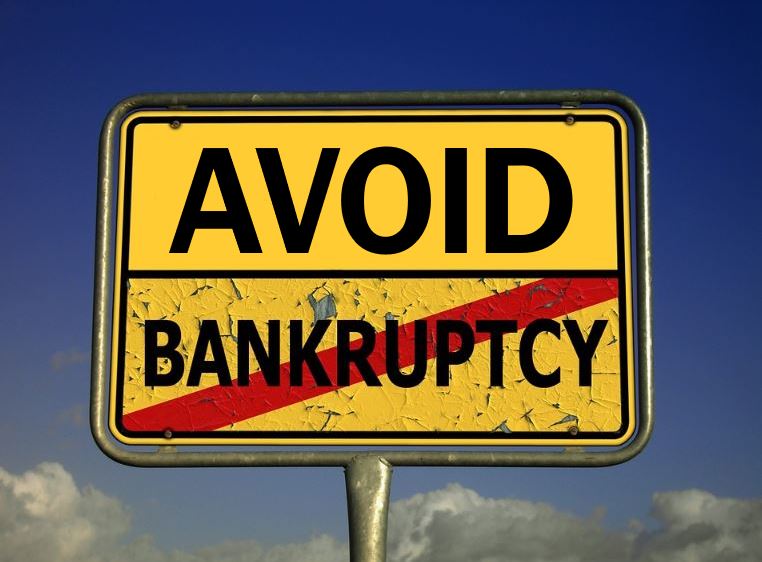Carrying debt is overwhelming. It’s a load that only feels heavier the farther you travel with it. But filing for bankruptcy isn’t necessarily a “get out of jail free” card, either. It is an option on the table — and for some may be the best, or only, choice. But generally, there are strategies to consider first that will wreak less havoc on your financial health. Here are four to consider.
 What Are the Consequences of Declaring Bankruptcy?
What Are the Consequences of Declaring Bankruptcy?
Before you even so much as think about filing, understand the consequences.
According to Investopedia, new U.S. bankruptcy laws may require those filing to continue making payments to creditors, as well as attend some combination of mandatory credit counseling and finance management education. You’ll also take a huge hit to your credit rating — damage that will be reflected for up to 10 years.
Make an Appointment with a Credit Counselor
If you’re going to have to meet with a credit counselor anyway, it’s better to do so on your terms. This way you at least have a chance to avoid bankruptcy. Credit counselors at reputable agencies, usually not-for-profits, can take a look at your financial situation and offer practical advice. They may also be able to help you enroll in a debt management plan, which simplifies repayment and may knock down your interest rates, too.
Make a Spending Plan — and Live by It
Making a spending plan and living by it will help you free up extra dollars to go toward debt repayment. Chances are there’s at least one category in which you can cut back.
Track your spending down to the penny. It sounds daunting, but is easier than ever thanks to all the budgeting apps and software available. You might even find some surprises, like a subscription you barely use or a pattern of overspending on food, clothes, travel or other non-essentials.
It’s a little bit like putting yourself on a diet, but for money rather than nutrition.
Try to Settle Major Debts
If you crunch the numbers and find you have unsecured debt — like medical bills or credit card balances — near or in the double-digit thousands, you may need a more aggressive approach than budgeting alone. Before you start despairing about how you’re possibly going to pay off so much debt, consider the fact that it may be possible to reach a lower settlement with creditors.
You can pick up the phone and call them directly. They may be willing to knock off some fees or even play ball by reducing the principal balance. But many people find it helpful to have a partner in the negotiation and settlement process. In a number of Freedom Debt Relief reviews, for example, enrollees in this industry-leading settlement program mention they were able to resolve their accounts for less and avoid bankruptcy.
To find success through settlement, you’ll need to commit to making monthly payments into a designated account for as long as it takes to save enough. Only then can negotiation experts reach out to creditors on your behalf with an offer, ideally reaching a settlement that’s a percentage of the original balance owed.
Consolidate Your Repayment Strategy
There are a few ways to consolidate your repayment strategy, making the process easier and the interest less steep.
The first strategy is transferring a high-interest credit card balance to a new card with an Annual Percentage Rate (APR) that’s low or nonexistent. This will provide a grace period in which you can focus on lowering your principal balance rather than trying to keep interest at bay.
The second strategy involves taking out a loan that you’ll use to pay down all your high-interest debts at once. Then you only have to focus on repaying this loan — which, if your credit score qualifies, will save you money in the long run with its lower interest rate.
As you can see, there are many avenues to consider before you drive down bankruptcy boulevard.
Interesting related articles:
- “What is (a) debt?“
- “Definition of Default.”
- “What is a Creditor?“

